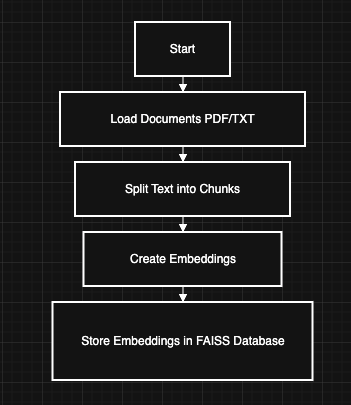Build Your Own AI Chatbot in 10 Minutes Using LangChain and Gemini
- Techno Billion AI
- 2 days ago
- 2 min read
In today's fast-paced digital landscape, AI chatbots have become indispensable tools for businesses and individuals alike. They enhance customer service, provide instant responses, and can be tailored for various applications. This guide will walk you through creating a conversational AI chatbot using LangChain and Google's Gemini model in just 10 minutes.
Types of Chatbots You Can Build
Before diving into the implementation, let's consider what type of chatbot you might want to create:

Knowledge-Base Chatbot: Answers questions based on specific documents or data you provide
Customer Service Chatbot: Handles common customer inquiries and support requests
Personal Assistant Chatbot: Helps with scheduling, reminders, and daily tasks
E-commerce Chatbot: Guides users through products and purchasing processes
Content Creation Chatbot: Assists with generating written content or ideas
For this tutorial, we'll focus on building a knowledge-base chatbot that can answer questions about specific documents you provide, but the framework is adaptable to any of these types.
Simple Workflow:
Document Processing:
Load PDF/TXT documents.
Split text into small chunks.
Generate embeddings and store them in FAISS.
User Interaction:
User asks a question.
Convert the query into an embedding.
Search FAISS for the most relevant chunk.
AI Response Generation:
Retrieve the best-matching information.
Generate a response and display it in the chat.
Cyclic Flow:
The user can continue asking questions.
The chatbot keeps searching the FAISS database for relevant answers.
Requirements
To follow along, you'll need:
Python 3.8+ installed
Basic Python knowledge
Google API key for Gemini (free tier available)
A text editor or IDE (VS Code)
Your own documents (PDF, TXT, etc.) that you want the chatbot to use
Step-by-Step Process
Step 1: Set Up Your Environment
First, let's create a virtual environment and install the necessary packages:
# Create and activate a virtual environment
python -m venv chatbot-env
source chatbot-env/bin/activate
# On Windows: chatbot-env\Scripts\activate
# Install required packages
pip install langchain langchain-google-genai pypdf python-dotenv gradio
Step 2: Obtain Your API Key
Go to the Google AI Studio (https://ai.google.dev/)
Create an account or sign in
Navigate to "API keys" and create a new key
Copy your API key for later use
Step 3: Set Up Your Project Structure
Create a new directory for your project with the following files:
chatbot-project/
├── .env
├── app.py
└── documents/
└── (your PDF or text files)
In your .env file, Add your API Key.
GOOGLE_API_KEY="<Your API Key>"Step 4: Create the ChatBot Application:
Now let's write the code for our chatbot. Open app.py and add the followings:


Step 5: Add Your Documents
Place your PDF or text documents in the documents folder. These will be the knowledge base for your chatbot.
Step 6: Run Your Chatbot
Run your application with:
python app.pyYour chatbot will be available at http://127.0.0.1:7860 in your web browser.

Conclusion
In just 10 minutes, you've built a powerful, custom AI chatbot using LangChain and Google's Gemini model. This foundation can be expanded and customized to suit virtually any use case you can imagine. The barrier to entry for creating AI-powered tools has never been lower, making it the perfect time to experiment with building your own intelligent applications.
Happy building!
1
Searing the Beef
Sear beef fillets on high heat for 2 minutes per side to form a golden crust. Let it cool before proceeding to keep the beef tender.
1
Searing the Beef
Sear beef fillets on high heat for 2 minutes per side to form a golden crust. Let it cool before proceeding to keep the beef tender.
1
Searing the Beef
Sear beef fillets on high heat for 2 minutes per side to form a golden crust. Let it cool before proceeding to keep the beef tender.
1
Searing the Beef
Sear beef fillets on high heat for 2 minutes per side to form a golden crust. Let it cool before proceeding to keep the beef tender.
Notes



1
Season the good fresh beef fillets with salt and black pepper. Heat olive oil in a pan over high heat and sear the fillets for 2 minutes per side until it fully browned. Remove the beef from the pan and brush with a thin layer of mustard. Let it cool.



1
Season the good fresh beef fillets with salt and black pepper. Heat olive oil in a pan over high heat and sear the fillets for 2 minutes per side until it fully browned. Remove the beef from the pan and brush with a thin layer of mustard. Let it cool.



1
Season the good fresh beef fillets with salt and black pepper. Heat olive oil in a pan over high heat and sear the fillets for 2 minutes per side until it fully browned. Remove the beef from the pan and brush with a thin layer of mustard. Let it cool.



1
Season the good fresh beef fillets with salt and black pepper. Heat olive oil in a pan over high heat and sear the fillets for 2 minutes per side until it fully browned. Remove the beef from the pan and brush with a thin layer of mustard. Let it cool.
Instructions
Quality Fresh 2 beef fillets ( approximately 14 ounces each )
Quality Fresh 2 beef fillets ( approximately 14 ounces each )
Quality Fresh 2 beef fillets ( approximately 14 ounces each )
Beef Wellington

Beef Wellington
Fusion Wizard - Rooftop Eatery in Tokyo
Author Name

Beef Wellington is a luxurious dish featuring tender beef fillet coated with a flavorful mushroom duxelles and wrapped in a golden, flaky puff pastry. Perfect for special occasions, this recipe combines rich flavors and impressive presentation, making it the ultimate centerpiece for any celebration.
Servings :
4 Servings
Calories:
813 calories / Serve
Prep Time
30 mins
Prep Time
30 mins
Prep Time
30 mins
Prep Time
30 mins






Comments